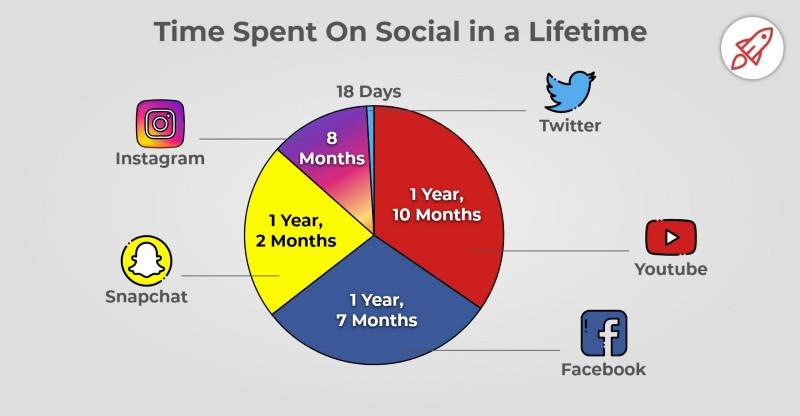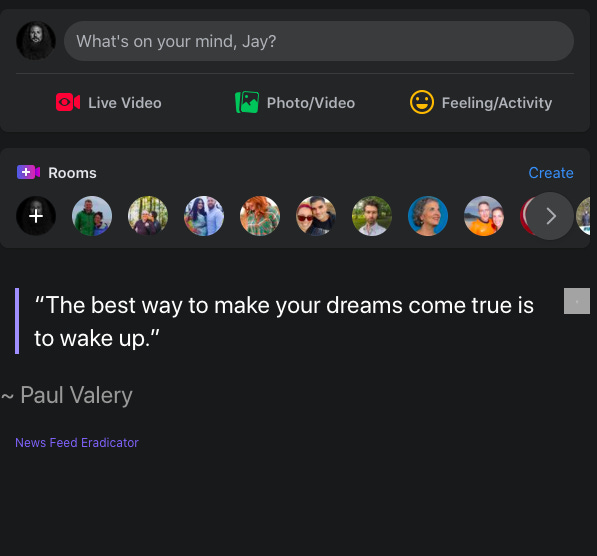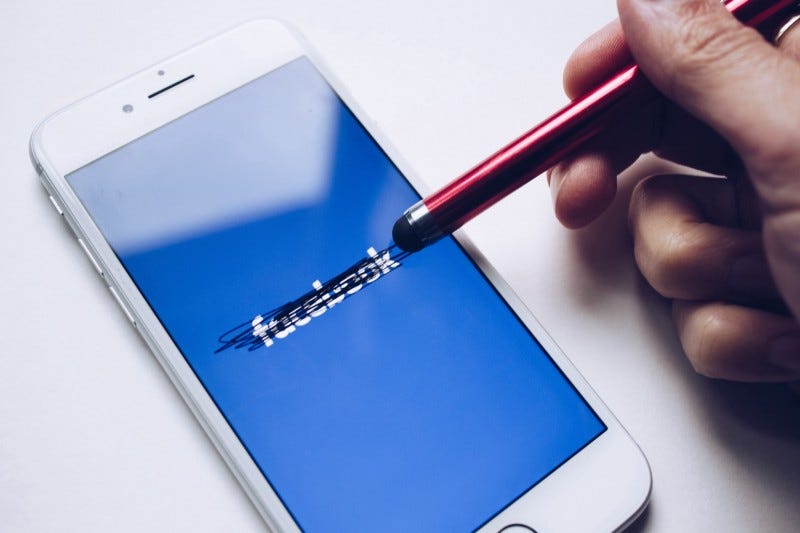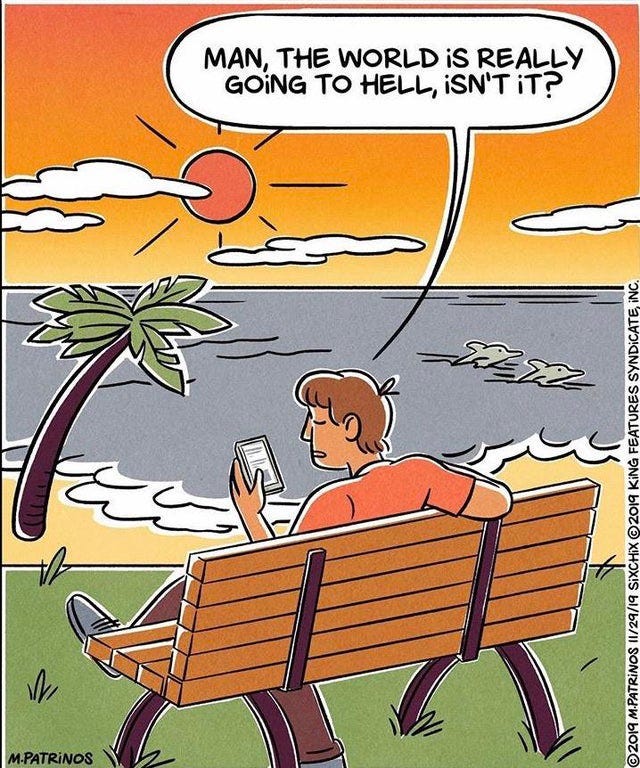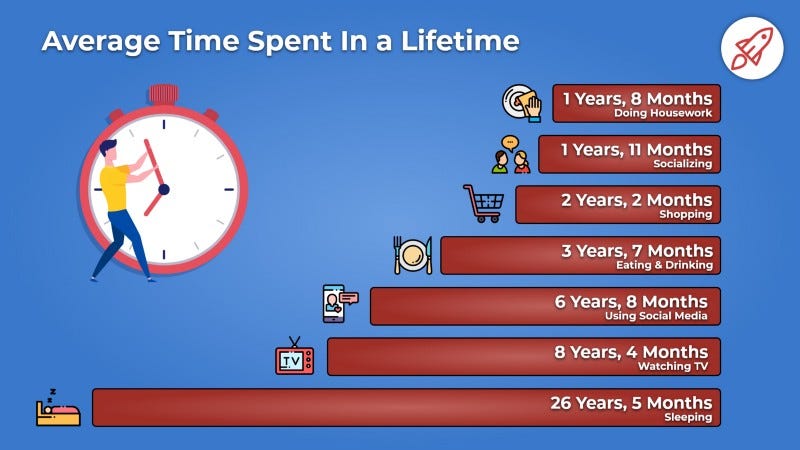How to Take Back Control of Your Life from Addictive Internet Algorithms
Practices and apps you can use to reclaim your attention and privacy — from simple to radical, and everything in between
Having now spent more than two decades of my life online — I attended an early e-high school while still on dial-up — I’ve come to the conclusion that the internet is like God: the experience isn’t the same for any two people.
Sadly, for most of us, the internet has become a highly-toxic, anxiety-inducing, privacy-eroding, sleep-robbing, work-distracting, ad-blitzing, time-devouring wormhole to nowhere. (Or, you know, believing the earth is flat.)
The fact is that we’re simply no match for the addiction algorithms that now rule the web. We’re too weak for the internet… or rather, the internet is too strong for us. Is it possible to flip the switch?
Is it possible to create a lifelong internet experience that’s enjoyable, private, low-anxiety, and time-controlled, with zero ads and minimal tracking, that actually contributes to your bottom-line life goals?
This step-by-step article will show you exactly how I did it.
Make the Internet a Tool, Not a Toy
The reality is that all tools use us. A hammer literally cannot hit a nail without using a human. A saw cannot cut through a board without using a human. A phone cannot deliver ads without using a human.
Once we understand that tools use us instead of the other way around, then we can start to figure out what sort of a tool a cell phone actually is. To do that, we have to ask a very uncomfortable question:
What is a smartphone’s primary commercial purpose?
It isn’t a trick question. Based on total revenues, the answer is clearly “to serve advertisements.” The phone’s secondary commercial purpose is to sell apps. Its tertiary commercial purpose is to get you to upgrade your phone every few years. That’s how the FAANGs became trillion-dollar companies.
In the same way, social media sites can’t make money by delivering ads and/or Russian propaganda without our eyeballs. Our tools are using us to earn big bucks for powerful elites — are we receiving a fair value exchange?
Social vs. Social + Media
When I was a kid growing up in the early nineties, life was extremely social. So much so that my parents had to limit my talk time on the (corded) phone, and had to force me inside for supper. There was simply too much basketball and road hockey to play with the neighbor kids.
Come high school, we had sleepovers and parties and campouts and movie nights and road-trips (sometimes across the entire country), and not a single one of us required a phone or an offshore multinational company with an addiction algorithm to keep us connected.
We didn’t need media to be social.

Today, we need a defense strategy
The modern reality is that we’re all being digitally profiled, tracked, stalked, addicted, and influenced by sophisticated algorithms that even their creators cannot fully understand.
It’s time to take back control.
By implementing an Internet Management Strategy, we can create a digital environment that automatically makes the web works for us, not against us.
Step 1: Install Time-Awareness Apps
The first step toward internet freedom is seeing how much of your time is being stolen by the algorithms that highjack your attention. Most people are absolutely shocked and appalled to see how many hours they waste on Netflix and social media and news sites after they install a free time-tracking app like RescueTime or one of its many competitors.

Step 2: Install Time-Defensive Apps
Once you get a sense of how you’re wasting your time, you can block or limit the websites whose algorithms best-know how to lure you in for hours. Website-blocking apps include Freedom, Focus, and SelfControl.
In addition to blocking all the sites that distract, it’s also important to schedule your desired reading time, rather than let it interrupt your work. This is where The Great Suspender comes in. Rather than keeping ten tabs open — and therefore slowing down your whole computer and wasting your time — TGS puts individual tabs to sleep until you wake them up again.
I keep a tab row open for work, but I keep a second browser window open in my desktop tray, specifically for articles that I want to read on the weekend. (Okay, fine, it’s always more than one: windows max out at 65 tabs, and I’ve been known to max out 3–4 windows per week. Luckily, my computer isn’t slowed in the least!)
Step 3: Install Ad-Defensive Apps
What is advertising? It’s the promise of life improvement in exchange for cash. The problem is that goods and services never give us more value than they take. (It’s pure math: profit margin = retaining more value than expending.) This doesn’t stop marketers from promising us the moon, of course. (As Seth Godin said, “All marketers are liars.”)
Today’s advertising is almost exclusively screen-based. It’s a computer-manipulated cue that nudges us in the direction of the marketer’s desired behavior, not our own. Accordingly, we need to defend ourselves against the onslaught of marketer-manipulators that want to control our actions.
Download uBlockOrigin
Forget AdBlocker — uBlockOrigin blows it out of the water. This little-known, free wunderapp has blocked over 2,253,000 ads since I installed it in 2018. Best of all? No more YouTube commercials!
Download Ghostery
Ghostery specifically focuses on blocking trackers. It’s shocking to see the massive list of blocked trackers populate when you visit a new site.
The one-two punch of uBlock+Ghostery should eliminate 95+% of the advertising in your life in less than 3 minutes.
Step 4: Use an Anonymous Browser and Search Engine
If you’re really serious about protecting your data from trackers, consider switching from Google-owned Chrome or Apple-owned Safari to an anonymous browser that doesn’t track your clicks or record your history.
Epic
Epic is “a private, secure web browser that blocks ads, trackers, fingerprinting, crypto mining, ultrasound signaling, and more.” It stops 600+ tracking attempts in an average browsing session and has the option to turn on network privacy with a free built-in VPN with servers in 8 countries.
This is especially handy for accessing articles and videos in other countries. Can’t watch that YouTube video because you’re in Canada? Switch the server to America. Can’t read that article because you’re in Sweden? Switch the server to the United Kingdom.
Tor
Tor is a long-time favorite web browser of journalists working within authoritarian regimes (and, unfortunately, child pornographers.) People use Tor to protect themselves against tracking, surveillance, and censorship — there’s even an option to connect a bridge if Tor is censored in your home country.
Text-Based Browsers
If you’re really serious about getting unhooked from digital stimulus, check out one of the many browsers that wipe all images from the web. (This is especially handy in places with weak internet connections.)
Once you’ve switched to an anonymous browser, you can also switch from Google/Yahoo/Bing to an anonymous search engine…
Search
As the U.S. government’s anti-monopoly suit against Google progresses, millions of people are realizing it knows far too much about us, and are abandoning the search engine for a more privacy-friendly alternative.
The leading contender is the rather dopily-named DuckDuckGo. Other options include Qwant, Gibiru, SwissCows, or SearchEncrypt. (I like DuckDuckGo for its ability to change your location to one of several dozen different countries before searching locally.)
Basically, use any search engine but Google.
Step 5: Go Greyscale
When I was shooting my documentary on pornography, we interviewed a brain surgeon who told us about how researchers put shiny and bedazzled eggs inside a bird’s nest, and pretty soon, the bird ignored her real eggs.
Screens are like bedazzled eggs to humans; we always ignore reality for the shiny digital alternative. It’s why porn is replacing sex. It’s why travel photos on Instagram look better than the real thing. It’s why your avocado toast never looks as pretty as a food blogger’s.
One of the greatest steps you can take towards killing a screen addiction is to greyscale your devices, eliminating the superstimulus that keeps your brain buzzing.
Step 6: Ditch Facebook
Facebook is an absolute time-killer: 1.4 billion daily active users log an average of 58 minutes apiece. The sheer loss of time is actually quite heart-breaking: imagine what we could build with the time-equivalent of 246,983,333 full-time jobs every year.
We should all ditch it immediately before it steals the best years of our lives:
But, if you’re like me and you just can’t fully give up Facebook just quite yet, there are some other options to protect yourself from its addiction algorithm:
Install Facebook Newsfeed Eradicator
As mentioned, the average Facebook user spends nearly 58 minutes per day on the social media behemoth. I calculate that this one free app has saved me over 1,000 hours in the past four years — 25 weeks of full-time work.
I cannot recommend Newsfeed Eradicator enough. You can still see what your friends are up to, but you’ll have to consciously and intentionally visit their walls. Today, I just have Facebook (desktop) Messenger — no Newsfeed, zero ads, no mobile version. It’s effectively my social inbox and little else.
Delete most of your group memberships
Go to Facebook Groups Feed, click on the gear icon on the left side, click on Memberships, and unsubscribe to groups you haven’t visited in a while. (I was a member of some groups I hadn’t visited in eleven years.)
Don’t be surprised if you get a lot of “error performing query” popups. If you want to delete a group that you’ve created, you’ve got to — get this — spend two clicks per person to remove every single member, then you have to archive the group, then you have to delete yourself as a member. In many cases, there isn’t even the option to delete the group. (I have one group with 2,100 members, but there’s no chance I’m spending 105 hours of waking life to delete each member, so I guess it’ll just be there until Facebook dies!)
Nietzsche said if someone won’t declare their motive, look at the outcome and infer the motive. The fact that there isn’t simply a “delete group” button suggests Facebook is willing to waste a colossal amount of your time in order to… continue wasting your time.
Turn off notifications
It’s important to understand how Facebook notifications really work: there are 15 main types of content on Facebook (comments, tags, reminders, friend requests, page updates, etc.) and Facebook has four ways (notifications, push, email, SMS) that it wants to let you know about every single item. That’s right — Facebook wants to bombard you from 60 different angles.
On your desktop browser, go to Facebook Notification Settings to make changes. (There’s no option to turn off all notifications, of course — you have to do all 60 individually.)
Out of the 60 options, I only have three in-Facebook notifications on:
1. If someone tries to tag me.
2. If someone comments on my wall.
3. If one of the pages I follow posts something. (Even then, you have to go through every single one of the groups you follow and turn off push notifications.)
All told, I have zero push notifications, zero email updates, zero SMSes, zero desktop alerts, and just 3 of the 60 in-Facebook notifications. In total, I had to individually turn off 126 attempts to distract me from the real work of living an embodied life.
Shore up your privacy
Visit Facebook Privacy Checkup and carefully review all five sections. Be sure to turn off Face Recognition, and turn off all Ad Preferences (this is the personal information that corporations can know about you.)
Eradicate autoplay
To halt videos from auto-playing, go to Settings>Video>select the drop-down menu to the right of “Auto-Play Videos”>switch from default to Off.
Turn off location sharing
Settings>Location>set to Never.
By doing all these things, Facebook should theoretically stop bombarding your life, and you won’t spend ~7 hours mindlessly scrolling each week. You’ll still have full access to all features, but instead of the addiction algorithms automatically seeking you out, you’re now in control and will have to purposefully engage with the content you want to see.
(P.S. Facebook is dead, it just doesn’t know it yet.)
Step 7: Ditch Twitter
Last month I “celebrated” my tenth year on Twitter.
I’m always looking for ways to decrease my exposure to screen tech, so I decided to run an honest cost-benefit analysis on the lean, mean, 280-character machine, and the results weren’t pretty:
It’s highly political.
It’s chock full of misinformation.
Its interface is prone to targeted harassment.
It’s trending extremely negative year-on-year.
It’s burned a huge amount of my time.
I have nothing to show for it. Over the past ten years, it’s added literally nothing to any of my deepest life goals.
In summary, it’s a tool I just don’t need. I suspect this is the same for most people. Ask yourself, “What bottom-line benefit does Twitter provide me?”
Though Twitter time consumption is quite low compared to Facebook and YouTube, its toxicity and lack of benefit make it a no-go for me and many others.
Can’t cut the cord just yet? Get Twitter Timeline Eradicator.
Step 8: Ditch the News (And Sports and Entertainment)
Mark Manson has a wonderful 27-minute-long article, entitled The Attention Diet, in which he claims that “distractions have become so pervasive in the digital age that we’ve come to accept them as normal. But we can escape their grip and free our minds.”
Perhaps few things hijack time and attention and stir up feelings of anxiety and anger more than the news. Manson: “It’s undeniable that news media is becoming more anemic, short-sighted, and inaccurate. Most articles are written for clickbait, not for veracity and utility.”
The modern reality is that commercial news = opinion + commentary.
We need to make news boring again.
“Boredom has no bias. The truth is that most of what passes for ‘news’ is disguised entertainment — information that is only impactful or important for a small group of people or far removed from your ability to influence anything and then exaggerated to make you feel outraged or angry or excited based on your specific identity group. The only way to win at this game is to not play.” — M.M
The first step is to remove all current sources of news from your life. Apps, subscriptions, bookmarked sites, home pages, all of it. There’s nothing new under the sun. It’s all manipulated by powerful private interests. It’s just an echo chamber anyway.
Then — if you simply “must” keep up with current events — try these two sources:
A. AllSides
Let’s face it: unbiased “news” doesn’t exist — the best we can hope for is a wide range of perspectives and some civil discourse in-between. AllSides gives you the news from the left, right, and center, and lets you thoughtfully consider the facts.
B. Wikipedia Current Events
There’s really only one good time to check the news: for about three minutes on Saturday afternoons. Any earlier and it can wreck your day. Any later and you might not be able to sleep. It’s too buzzy.
Wikipedia Current Events, on the other hand, is glorious because it’s downright boring. No sensationalism, minimal politicking, just the facts.
Note: by switching from commercial “news” to AllSides and WikiCurrent, you’ll quickly notice that you don’t feel the same buzz. You’ll be just as informed — or likely far more informed — but you’ll walk away feeling slightly disappointed. That’s because your body isn’t reacting, isn’t sending you into fight-or-flight, isn’t giving you a high and a jolt of anxiety for the road.
Keep detoxing. Console yourself with the fact that you’re still in touch with the world. Pretty soon, you might find yourself checking in on the news far less often. This is a very good thing.
Step 9: Ditch Netflix, Apple TV+, Hulu, Prime, HBO, Etc.
If you thought social media was a huge time-killer, you should see what streaming video is doing to the world. If we subtracted all the dead time we waste on Netflix, our average life expectancy would be back in the middle ages.
It’s really hard to give up on streamers, but it gets much easier if you tape a piece of paper across your laptop or TV that says: “Will this episode support any of my core life purposes?”
Save the cinema for a special treat on the weekend with friends. Make it an event again. (You can rent from the library or iTunes or Amazon, or share an account between a group of friends.) I have a friend who knows he’s no match for Netflix’s addiction algorithm, so he’s still one of the ~500,000 members who still gets two DVDs per week on rotation.
Step 10: Educate Yourself
There are a number of books on screen management and addiction algorithms that are worth reading in order to educate and protect yourself from the commercial addiction industry:
Irresistible: The Rise of Addictive Technology and the Business of Keeping Us Hooked
Indistractable: How to Control Your Attention and Choose Your Life
Glow Kids: How Screen Addiction Is Hijacking Our Kids — and How to Break the Trance
Also, if you haven’t seen the new documentary The Social Dilemma, carve out some time this weekend. (It’s so anti-social-media that Facebook felt the need to publicly disparage the film.)
Bonus #1: Ditch Your Devices
It’s time for full disclosure: I don’t own a cell phone. I’ve been cell-free since I ditched my Blackberry to go backpacking through Central America nearly ten years ago. Since then, I’ve published three books, produced four films, traveled to 40 countries (including North Korea and the Vatican), and road-tripped nearly 100,000 miles through 45+ states and 10 Canadian provinces, all without a cell phone.
I promise you it’s not only possible but preferable.
If you really love talking and texting and aren’t quite ready to give up your smartphone, you can always upgrade to a “dumb phone” that offers the basics without all the addiction algorithms and intrusive tracking.
Still another option is to turn your current smartphone into a dumb phone by stripping it back to the very basics: greyscale the screen, delete all social media from your phone, delete all non-tool apps, and delete all push notifications. (This last one is the key. My best friend always asks, “how many pushes makes a shove?”)
Interrogate your intentions
If you feel you must have a smartphone without turning it into a dumb phone, you need to write a list of reasons why. Take inventory of how you’re currently using your phone. Be brutally honest. Then write a list of your vision for how you’d ideally like to use your phone, computer, and the internet. The dream scenario. Now compare reality to the dream. Then find a way to bridge the gap.
You know what you need to do to get where you need to be. This will be an immensely difficult intentionality exercise, but your future self will thank you for taking control today.

Hardcore Bonus #2: Ditch the Internet
Last year I spent two months in Florida without the internet. It was a purposeful experiment to see how it might improve my productivity, and the results were shocking: during that time, I wrote two screenplays and a 75,000-word novel. In the year since, I’ve finished exactly zero projects.
Why not?
Because the internet is so dang interesting. That’s the point of it, really. To hook your attention and never let go. You don’t become a trillion-dollar tech company by letting fish off the line. I love the Internet. I could scroll for the rest of my life. Literally.
And it would kill my life purpose.
So I cut the cord and changed the way I work: I actually have two (refurbished) Macbook Airs — one’s connected to the internet, and the other is gloriously web-free. When I wake up in the mornings, I “sit down” at my standing desk and work all day without the web. My goal is to stay offline until after 4 p.m.
If I need to research something, I write it down for later.
If I want to check my emails, I just don’t.
If I need to hop on a Zoom call, I have to go through the hassle of sparking up the other computer, which makes me far more likely to schedule meetings around my core work, rather than letting them interfere.
All told, this no-internet-before-supper approach has drastically cut back on time-wasting screentime and has more than tripled my daytime productivity on my core priority tasks. I’ve finished several writing projects in a matter of weeks that had been languishing for months.
After 4 p.m., I’ll spend a limited number of hours catching up on emails and research, then watch interviews and clips on YouTube while we cook and eat and do dishes, before reading a book and heading out for our nightly star walk.
While it’s one thing to avoid the web until nightfall, my hero in the no-internet realm is Mark Boyle. Mark spent three years without using money before going off-grid entirely, moving to an Irish smallholding with no internet or electricity whatsoever. The dream!
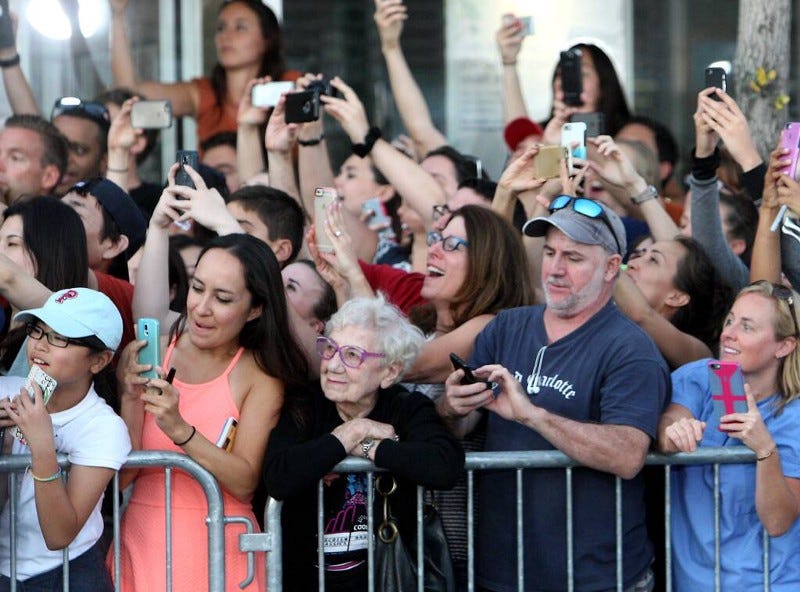
What Do I Do With All This Extra Time & Attention?
Plant a garden.
Brew kombucha.
Volunteer locally.
Start a business.
Take ballroom or krav maga with your partner.
Automatically read an extra 50 books without even really trying.
Sleep an extra hour or two so you feel like Wonder Woman.
Write letters to your mom. (Next one’s on the way, Mama!)
Connect (for real) with friends or loved ones.
In many ways, taking control of your screen time actually allows you to live the life you want to live, instead of the life the tech companies want for you.
It all depends on how serious you are about taking back your life.
Poetry Pause!
In the 1970s, acclaimed farmer-poet Wendell Berry penned a powerful poem about the new technological forces that were seeking to colonize the minds of his day. His words are just as relevant today as they’ve ever been:
Manifesto: The Mad Farmer Liberation Front by Wendell Berry
Love the quick profit, the annual raise,
vacation with pay. Want more
of everything ready-made. Be afraid
to know your neighbors and to die.
And you will have a window in your head.
Not even your future will be a mystery
anymore. Your mind will be punched in a card
and shut away in a little drawer.
When they want you to buy something
they will call you. When they want you
to die for profit they will let you know.
So, friends, every day do something
that won’t compute. Love the Lord.
Love the world. Work for nothing.
Take all that you have and be poor.
Love someone who does not deserve it.
Denounce the government and embrace
the flag. Hope to live in that free
republic for which it stands.
Give your approval to all you cannot
understand. Praise ignorance, for what man
has not encountered he has not destroyed.
Ask the questions that have no answers.
Invest in the millennium. Plant sequoias.
Say that your main crop is the forest
that you did not plant,
that you will not live to harvest.
Say that the leaves are harvested
when they have rotted into the mold.
Call that profit. Prophesy such returns.
Put your faith in the two inches of humus
that will build under the trees
every thousand years.
Listen to carrion — put your ear
close, and hear the faint chattering
of the songs that are to come.
Expect the end of the world. Laugh.
Laughter is immeasurable. Be joyful
though you have considered all the facts.
So long as women do not go cheap
for power, please women more than men.
Ask yourself: Will this satisfy
a woman satisfied to bear a child?
Will this disturb the sleep
of a woman near to giving birth?
Go with your love to the fields.
Lie down in the shade. Rest your head
in her lap. Swear allegiance
to what is nighest your thoughts.
As soon as the generals and the politicos
can predict the motions of your mind,
lose it. Leave it as a sign
to mark the false trail, the way
you didn’t go. Be like the fox
who makes more tracks than necessary,
some in the wrong direction.
Practice resurrection.
In Conclusion
“Hard choices, easy life. Easy choices, hard life.” — Jerzy Gregorek
I hope this article has been the most practical, tactical, helpful article you’ve read all month. I hope it saves you thousands of hours and millions of ads.
The point, of course, is not for you to ditch your phone, then move offline and off-grid. (Though maybe it is, for some.) The point is to know what kind of life you really want to live, and then taking steps to make it a reality.
Is your current internet relationship benefiting your bottom-line goals?
Is your internet life making you a consumer or a contributor?
Is your attention focused on your highest priorities?
Is your online experience a life-giving one?
For me, the web is now an enjoyable, private, low-anxiety, time-controlled environment with zero ads and minimal tracking. It’s a nice place to be, and it contributes to my life goals instead of keeping me from achieving them.
No matter your level of screen management, the key is to have a plan. We need to know our values and priorities and goals and life purposes, and then choose and use our tools accordingly.
There are unbelievably powerful entities and algorithms that are aggressively seeking to shape every waking minute of our lives, but with deep intentionality, we can not only stop them but live life on our own terms.
The power is literally in our hands.











